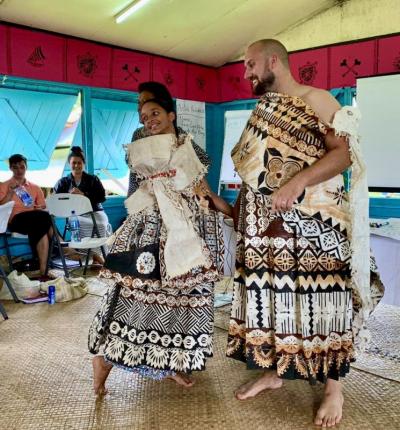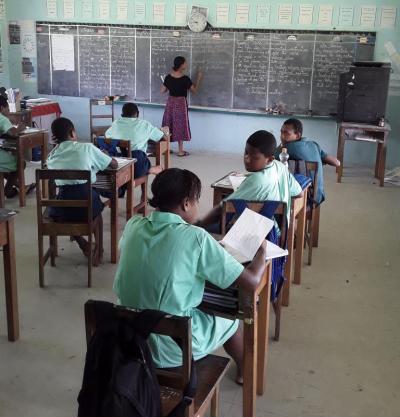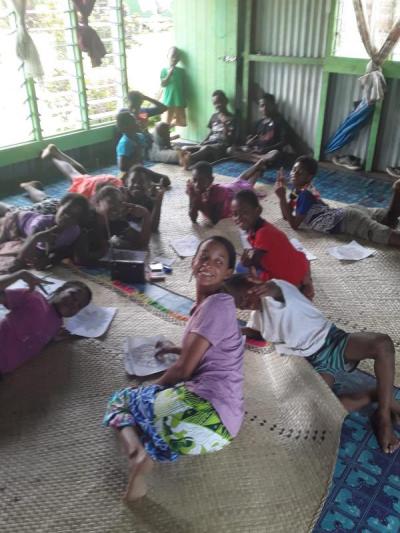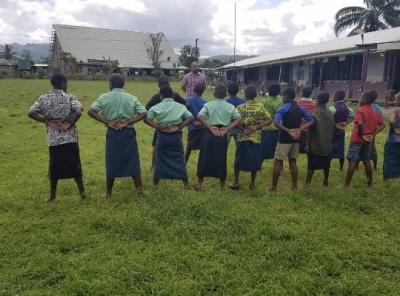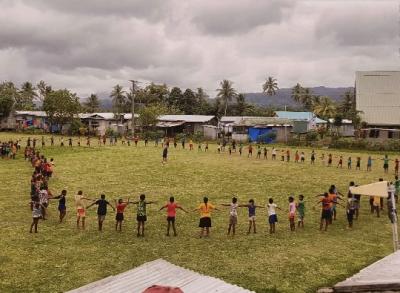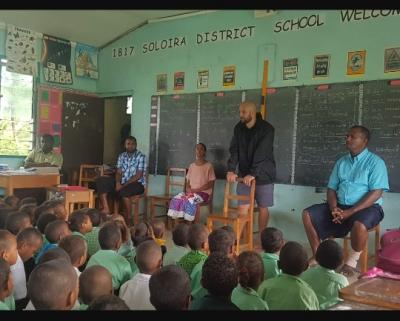Wareham couple’s Peace Corps service cut short by pandemic
Wareham’s Nicholas Brogioli and Lacey Vasconcelos embarked on a two year journey with the Peace Corps to teach healthy living, and computer skills to kids in Fiji, while also learning many things from their new neighbors in return. Unfortunately, their time in the island-nation was cut short by the coronavirus pandemic.
The husband and wife from Wareham decided to enlist in the Peace Corps because they thought it would be “a nice way to help other people, and explore the world as well.”
They left the United States last August, and traveled all the way to the rural village of Serea on Viti Levu, Fiji’s largest island.
Although their contract was signed for two years of service, the couple was sent home in March due to the coronavirus.
“It happened so fast,” Brogioli said of the change of plans, as the threat of the virus forced the couple to pack their bags and say their goodbyes in just 48 hours.
After returning to Wareham, Brogioli and Vasconcelos spent ten days in quarantine to be safe, although neither tested positive for the virus.
While their journey may have been cut short, Brogioli and Vasconcelos had no shortage of things to share about their time in Fiji.
The Wareham natives taught at Soloira District School, a small school of about 180 students enrolled in Kindergarten through eighth grade.
Both of the Peace Corps members were able to instill the values of healthy living to their students. Vasconcelos taught a lesson about the health risks of smoking tobacco, something that is widely known in the United States, but less so in Fiji.
Brogioli used his experience as a marine, to help keep students active after school. He said he taught them platoon formations, and practical skills like how to build a campfire.
Soloira District School is one of the few schools in the area with a computer program, and Brogioli and Vasconcelos said that many students had little to no experience using the technology. As such, they were able to teach kids how to turn the machines on and off, and some basic computer skills as well.
Vasconcelos previously worked in an environmental lab, and she used that experience to lead classes through some experiments. She said that this made for a refreshing change of pace from traditional note-taking.
Brogioli added that they were able to dispel some myths about America during their time as teachers in Fiji. For example, Brogioli said some students asked if all Americans carried guns, to which he said that they do not.
While they were on the island to teach lessons, they also learned many new things in return.
In addition to learning the iTaukei language, the Americans learned about the Fijian culture.
“Going in at first, I was very nervous,” Vasconcelos said about adapting to a new way of living.
For Vasconcelos, one of the most noticeable differences between American and Fijian culture, is just how open people are with their neighbors in Fiji.
“Everything is very communal” she explained, as neighbors were surprisingly welcoming, and even invited her into their homes on her first day in the village.
Vasconcelos and Brogioli had high praise for their students as well, who they described as intelligent, respectful, and creative.
Another experience Brogioli and Vasconcelos said they enjoyed was telling stories with neighbors while drinking Kava, a drink made from plant roots with a mild sedative effect.
The Peace Corps members also had to adapt to living in the mountains of Fiji. They said that they had electricity, but had to bathe themselves using a bucket rather than a shower head.
Brogioli said that it felt odd to come home into a quarantine, and that he is hoping for a “fast track to reinstatement” to the Peace Corps once this challenging time is finally over.



